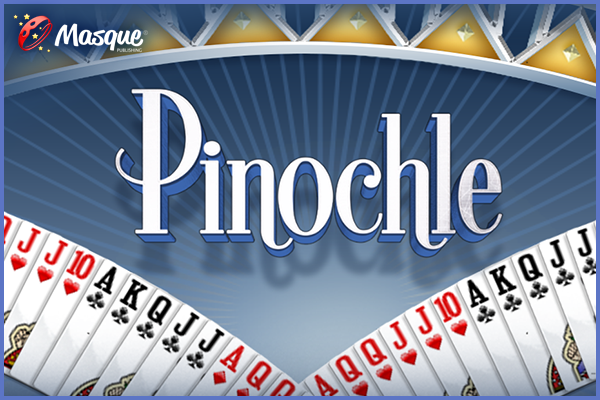

The meld doesn’t have to be of higher value, per se, just further up the tree. That means you can take a card or cards from a lower meld class, and place them together with some cards from your hand to form a meld in a higher class. You can meld up, but you can’t meld down.You have to draw at least one from your hand. You can’t just re-arrange cards on the table and call them melds. At least one card must come from your hand.The Pinochle is always the Q♠ J♦ regardless of the Trump.Ī Double Pincochle combines two of each Q♠ J♦Ī player melds by placing one of the combinations face up on the table, where they remain until they are played or led to a trick at the player’s discretion, as if they were cards in his/her hand.Īs far as taking cards from one meld and combining them with others to make a another meld the following rules apply Upon winning a trick, and before drawing from the stack, a player may meld any of the combinations displayed below, and score immediately its point value. After just twelve tricks, the stack will be exhausted, and then the time for meld-making is over, and the rules change. And this is an opportunity that doesn’t last forever. There is, however, the opportunity to make melds and score points that way. The players use this period of play to thrw off certain cards they don’t want, and prepare their hand for the Play-Off. There is no particular incentive to win tricks in this stage, unless they offer a valuable card or the player wishes to meld. Of course, that means that if you don’t win the trick, you can’t meld. Upon winning a Trick, a player may meld - but must do so before drawing a card from the stack.If no trumps are played, the Trick is won by the highest card of the suit led.The trick is won by the highest Trump card played to it.A player may lead any card, and the opponent has no obligation to follow suit - You can play any card.While there are still cards to draw, the following trick-taking rules apply: Pinochle has two very distinct stages of play: The "Opening" and the "Play-Off.

The winner of the trick takes us both cards and lays them face down in front of them.Īfter each trick, players draw a new card from the top of the stack, winner first, until the stack is exhausted, and they then play out their remaining cards in hand in the "Play-Off". A player leads by placing a card face up on the table, and the opponent responds by playing one of their cards face up in reply. Left of the dealer leads first, and thereafter whoever wins the trick leads to the next. Players cut to deal, and 12 cards are dealt to each player, in batches of three and four, whereupon the next card is turned face up and left protruding from beneath the remaining stack. The value of those cards won in a trick and counted up as points at the end of each hand are: A total of 8 Kings, 8 Queens, 8 Jacks etcetera.įor the purposes of Trick-Taking, the cards rank A, 10, K, Q, J, 9. Therefore you’ll have two of each card in your deck. That will give you two decks of 24 cards that you combine to make one deck of 48 cards. Take two decks of standard playing cards and strip out the 8’s and down. The basic dynamics of the game remain the same, so we will explain a standard version here. There are many variations, but most of them concern the number of cards or value of melds. The game can be played to a grand total of 1000 points over several hands. Because each player has twelve cards, and the stack will be exhausted after twelve tricks, the play has two very important stages, and the rules and the objectives shift. The objective is to score points by making melds of certain combinations as set out below, and by winning tricks with valuable cards in them. It has two distinct stages of play, so the objectives and dynamics shift. Pinochle is a great card game for two players that employs a combination of meld-making and trick taking. In America, however, the game was eagerly embraced and quickly gave rise to a number of variations of which one of them is Pinochle. Bezique was popular in Paris gaming establishments in the 19th century, and appeared briefly in Britain around the 1860s but never really gained in popularity. Pinochle is a derivative of Bezique, a 2 player game of French origin still widely played in Europe.


 0 kommentar(er)
0 kommentar(er)
